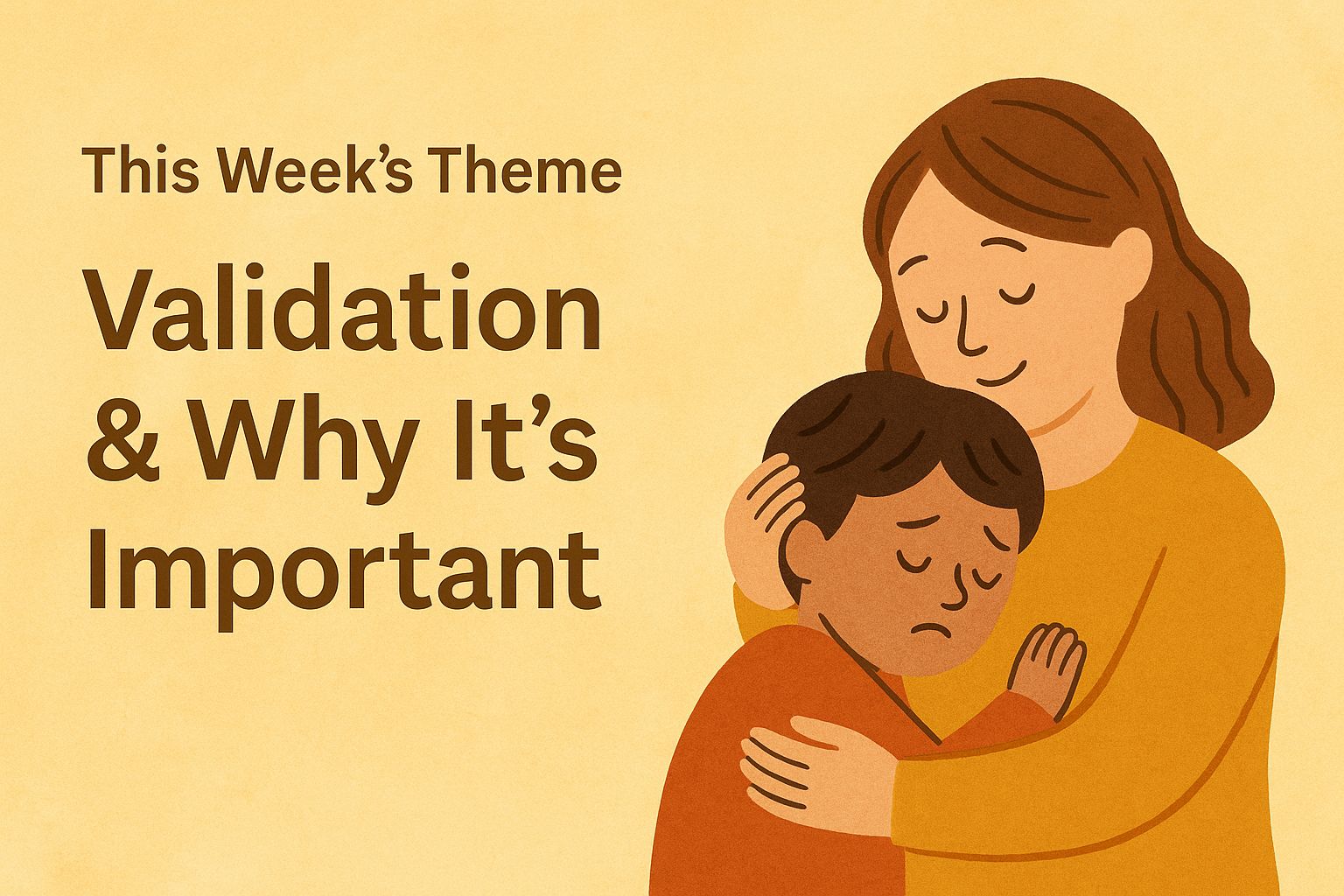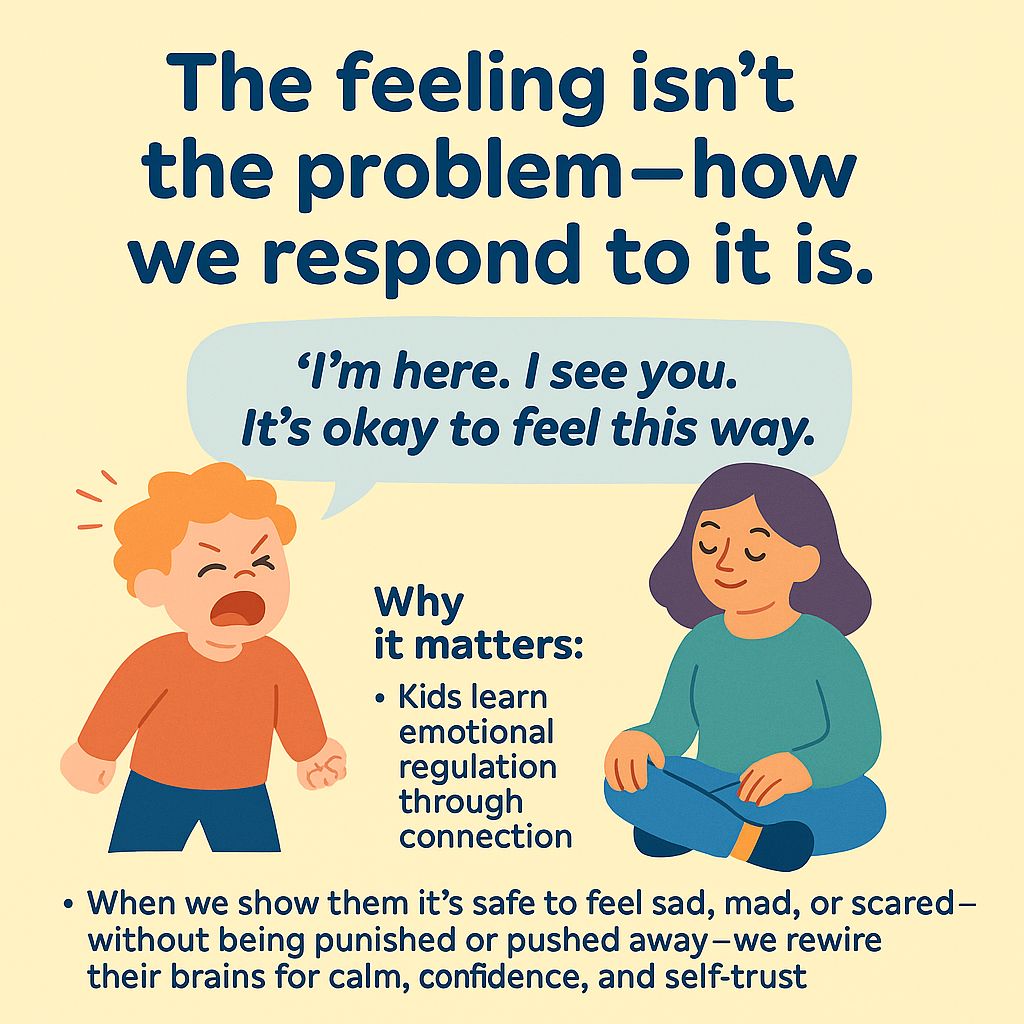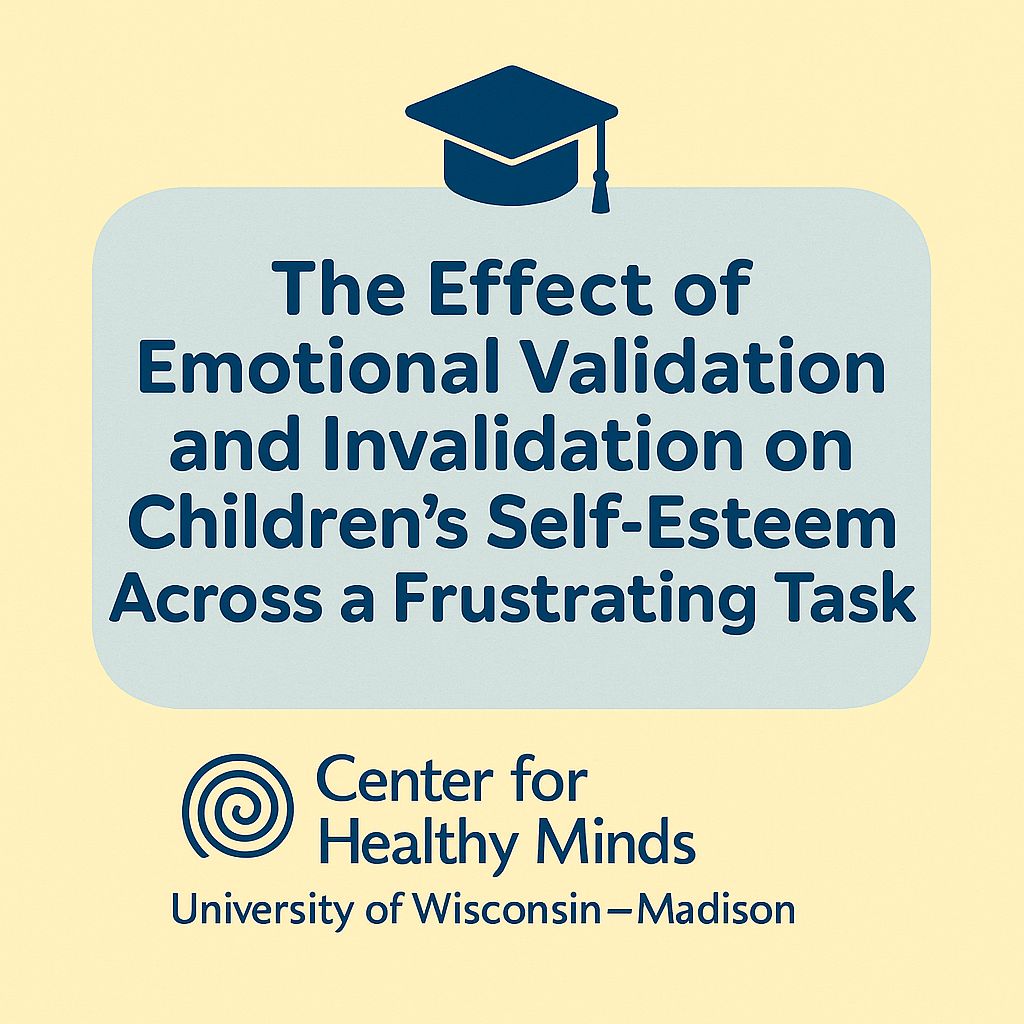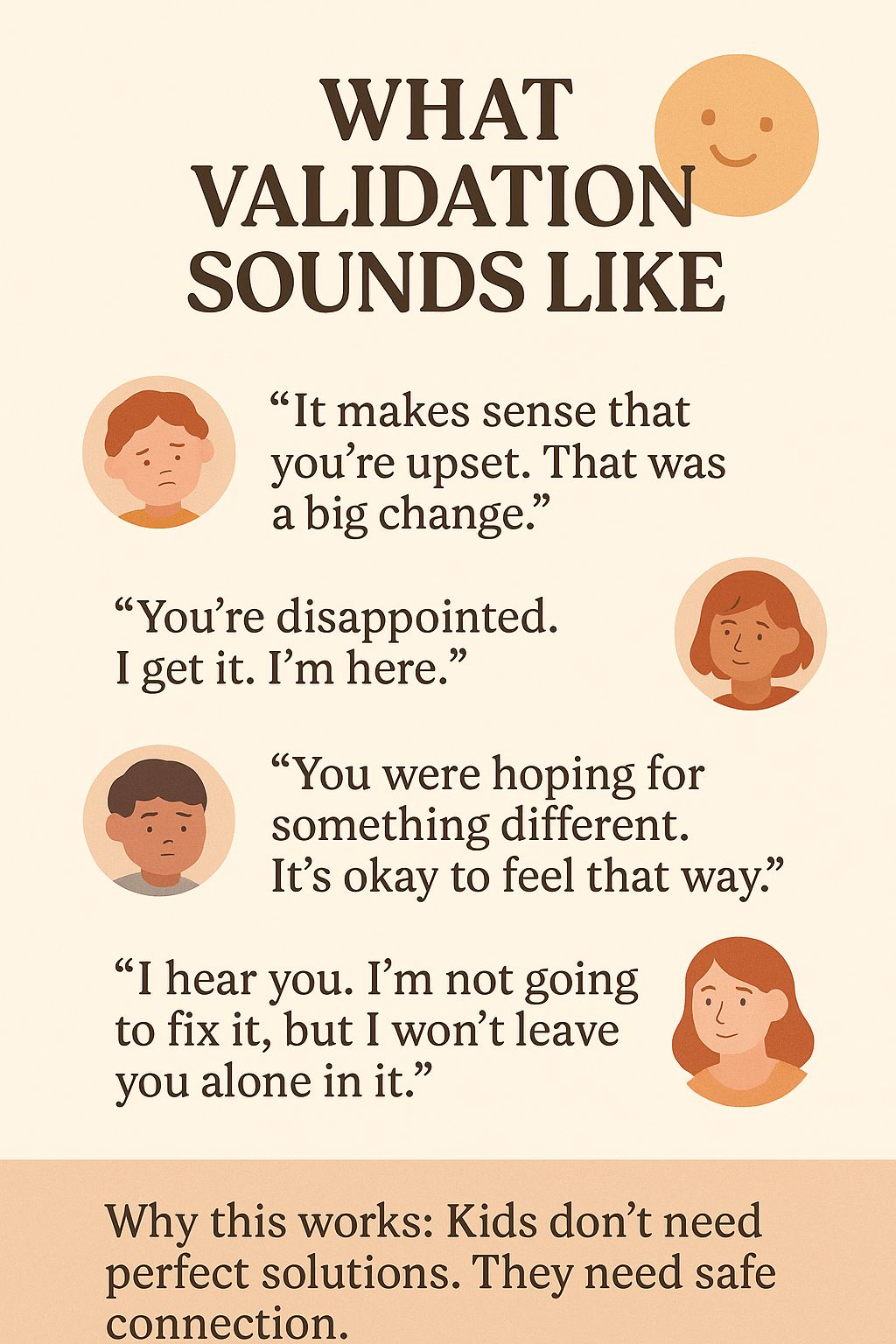This Daily Ritual Goes Wherever You Do
Summer travel often means skipped meals, red eye flights, and way too many pastries.
AG1 helps you stay on track with 75+ vitamins, minerals, pre/probiotics, and adaptogens for energy, gut and immune support.
Subscribe to get AG1 + 10 free travel packs, and more—all for under $3 a day.
💛 A Little Click Goes a Long Way
We carefully choose the ads in this newsletter to make sure they’re family-friendly and relevant. When you click on them, you’re helping keep Playful Parent free and thriving—so thank you for supporting us with just a tap or two!

“You’re Allowed to Feel That” — Why Validation Matters More Than We Think
What is validation?
Validation is the simple act of letting your child know that their feelings make sense.
It’s not the same as agreeing.
It’s not the same as fixing.
It’s just showing up with empathy and saying:
“Your feelings are real, and I see them.”
🔑 Why It Matters
When kids don’t feel understood, they often escalate — not because they’re “bad,” but because they’re trying harder to be heard.
Validation offers them a bridge back to connection.
“You’re mad that we can’t go. That’s disappointing. I get it.”
And now the door to calm is cracked open.
🧠 What the Research Says
Children’s brains rely on co-regulation from caregivers to learn how to handle emotions.
When we validate a feeling, it tells their nervous system:
🌀 This emotion won’t last forever.
🧠 You’re not in danger.
💛 You’re not alone.
That’s how emotional safety is built.
💬 Real-Life Example
🚫 “You’re overreacting. It’s not that big of a deal.”
This teaches children to question their internal world.
✅ “That really mattered to you. I can tell it feels big.”
This teaches children to trust themselves — and us.
👶 But What If I’m Raising a Toddler?
Even for little ones who don’t speak in full sentences yet, you can validate with your tone and presence:
“Ohh you wanted more. You’re sad. I see you.”
(Then just stay close.)
You don’t have to distract, explain, or rush to stop the tears.
Feeling felt is the fix.
🧩 What Validation Is NOT:
It’s not:
“Cheering up” too soon
“Explaining it away”
“Jumping straight to problem-solving”
“Only accepting ‘polite’ emotions”
Validation is about being with the emotion before we try to change it.
🌱 The Long-Term Gift
When children grow up in an environment where their emotions are met with calm curiosity instead of shame or dismissal, they become:
Emotionally resilient
Self-aware
Less reactive
More compassionate — with themselves and others
Because they’ve learned:
“My emotions don’t make me too much. They make me human.”


Want more fact based evidence? Check out this interesting read! https://pmc.ncbi.nlm.nih.gov/articles/PMC4465117/




